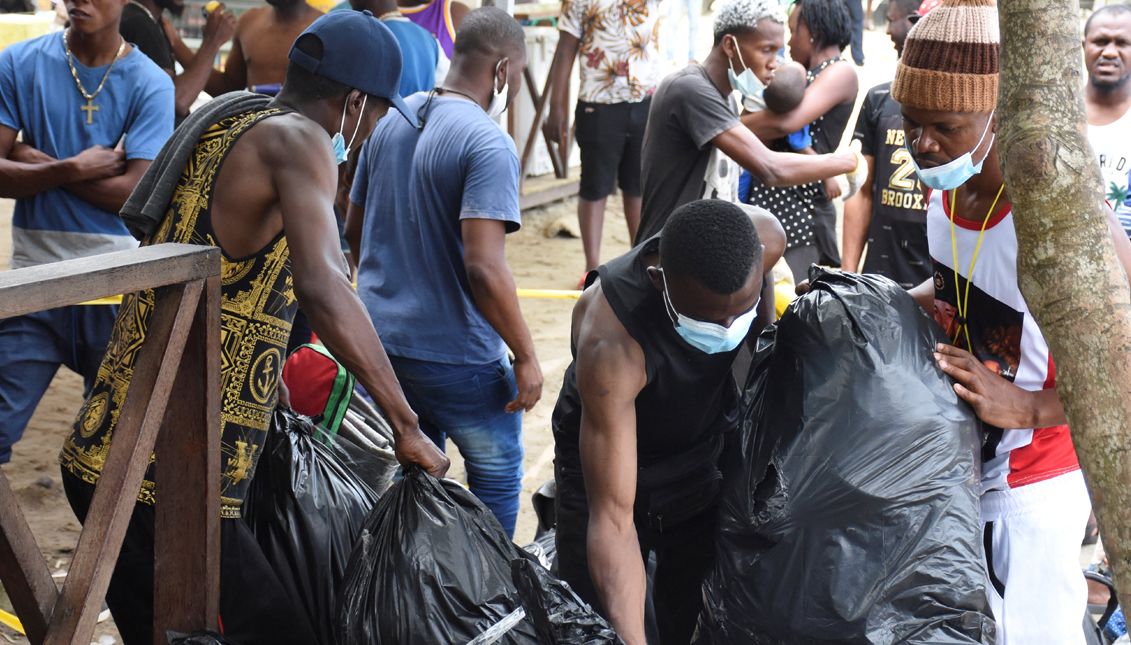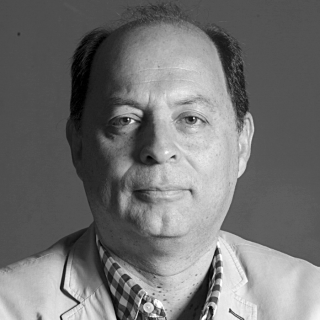
Migration crisis in a Colombian coastal town
They come mainly from Africa and Haiti and are making their way to the United States. The sanitary conditions are deplorable there.
Necoclí is known because Juan Guillermo Cuadrado, the star of Juventus de Turin and a key player in the Colombian Soccer Team, was born there. It is a small town with no more than 35,000 inhabitants in its urban area in the extreme northwestern part of Colombia and close to the Caribbean Sea, in the Gulf of Urabá.
It has been in the news for two weeks because it was alarmingly filled with migrants who settled there due to the difficulties to continue on their way to the United States. There are more than 15,000 women, men and children who undertook a long journey to escape poverty in their countries of origin. Most came from Africa and others from Haiti.
The fatal coincidence in the same place occurred due to the transportation difficulties to get to Panama, crossing the Darien jungle, a step of the highest risk. The streets are packed with people and public services have collapsed.
The Colombian ombudsman, Carlos Camargo, who has sent officials to verify the situation in Necoclí, has stated that migrants have denounced that illegal groups charge them up to $300 to cross the border and remain in Panamanian territory. It is estimated that about 500 people arrive daily in this town, increasing the crisis.
Camargo, who hopes to meet with the ombudsman of Ecuador, Panama and Costa Rica, to seek joint solutions, also told the media that the mobilization of migrants takes place through “an international network that comes from Chile, which is moving them from different points of the route, and to which they must pay a kind of toll”.
The European media Euronews, with information from the EFE agency, reported the contrast that is experienced in this town, usually forgotten from the central power.
"The arrival of the migrants has been a gift from God. Why? Because Necoclí is a very small town and being so small we have very few jobs for the people. Most of the activities are informal, there is no work, a lot of people suffered doing paid daily jobs and paid their daily expenses with that. Thanks to the arrival of the migrants, people here in Necoclí are working, getting out of the debts of which they are tired," said one of its inhabitants, as reported by Euronews.
RELATED CONTENT
Meanwhile, the Colombian government seeks to speed up a solution with Panama and Costa Rica. This Friday, the Colombian Vice President and Foreign Minister, Marta Lucía Ramírez, will meet with the Panamanian Foreign Minister Erika Mouynes. Ramírez said about this meeting at the binational border, that "we must apply a principle of co-responsibility to avoid this inhuman flow of people with no clear direction or destination.”
In recent years, due to the crisis in Venezuela, Colombia has received at least a million and a half people from that country in search of better living conditions, which has impacted different Colombian cities. In addition, internally there is also the phenomenon of forced displacement due to the armed conflict in different regions of the country.
Referring to what is happening in Necoclí, the Colombian president, Iván Duque, warned this Tuesday that “it is not a phenomenon of Colombian migration and it is not even a matter of Venezuelan migration; we are seeing migrants from other parts of the continent and the world, from Africa, from Asia. And there is a border point that has always had some level of porosity historically ”.
Indeed, Necoclí is an obligatory passage for migrants who go from other countries to North America, but never in the volumes that are being now registered.
As has happened with the Venezuelan migration, Duque reiterated that “it is an issue that we have to face among several and we are working so that there is a table between several countries and we understand what is the place of origin and what is the best way to move that flow, take into account what the immigration restrictions are and what their final destination is ”.
In addition, he warned that "we cannot leave permanent locking up in border areas."
Illegal armed groups related to drug cartels operate in the region, which further complicates the situation.











LEAVE A COMMENT: